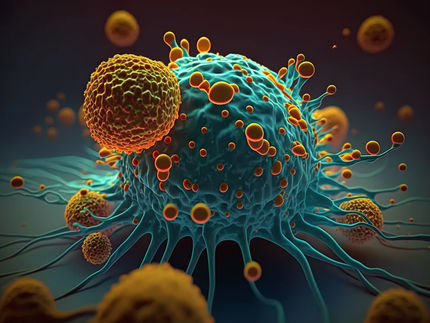Intercell provides update on ongoing Phase II vaccine studies
Pseudomonas vaccine: Study in intensive care patients to investigate immunogenicity and safety of a Pseudomonas aeruginosa vaccine and to assess Pseudomonas infection rates
Intercell AG announced that interim data from a Phase II clinical trial investigating the compan's vaccine candidate for the prevention of infections with the bacterium Pseudomonas aeruginosa are available. Intercell's vaccine is a recombinant subunit vaccine consisting of two outer membrane proteins of Pseudomonas aeruginosa.
In the Phase II clinical trial, mechanically ventilated intensive care patients are vaccinated with Intercell's prophylactic Pseudomonas aeruginosa vaccine. These patients are at a particularly high risk of acquiring severe and often life-threatening forms of Pseudomonas aeruginosa infections, such as ventilator-associated Pneumonia, Sepsis or soft tissue infection. Two different dosages of alum-adjuvanted vaccine and one formulation without adjuvant are used in the placebo-controlled trial.
The interim analysis from 225 out of 400 total patients to be vaccinated in this study has shown good safety and tolerability of the vaccine. In addition, robust immunogenicity by antibody induction which were assessed by standard and avidity IgG ELISA and functional opsonization assays could be shown. Functional antibodies are expected to be the major protective mechanism against Pseudomonas aeruginosa infections. Immune responses and safety data observed in intensive care patients appear largely comparable to results from a preceding Phase I trial in healthy volunteers. Based on these interim data an independent Safety Board recommended the continuation of the study. Meanwhile, the trial is fully enrolled, having achieved recruitment of 400 patients in more than 40 intensive care units in nine countries in Europe and Latin America.
Organizations
Other news from the department research and development

Get the life science industry in your inbox
By submitting this form you agree that LUMITOS AG will send you the newsletter(s) selected above by email. Your data will not be passed on to third parties. Your data will be stored and processed in accordance with our data protection regulations. LUMITOS may contact you by email for the purpose of advertising or market and opinion surveys. You can revoke your consent at any time without giving reasons to LUMITOS AG, Ernst-Augustin-Str. 2, 12489 Berlin, Germany or by e-mail at revoke@lumitos.com with effect for the future. In addition, each email contains a link to unsubscribe from the corresponding newsletter.
More news from our other portals
See the theme worlds for related content
Topic world Antibodies
Antibodies are specialized molecules of our immune system that can specifically recognize and neutralize pathogens or foreign substances. Antibody research in biotech and pharma has recognized this natural defense potential and is working intensively to make it therapeutically useful. From monoclonal antibodies used against cancer or autoimmune diseases to antibody-drug conjugates that specifically transport drugs to disease cells - the possibilities are enormous

Topic world Antibodies
Antibodies are specialized molecules of our immune system that can specifically recognize and neutralize pathogens or foreign substances. Antibody research in biotech and pharma has recognized this natural defense potential and is working intensively to make it therapeutically useful. From monoclonal antibodies used against cancer or autoimmune diseases to antibody-drug conjugates that specifically transport drugs to disease cells - the possibilities are enormous
























































